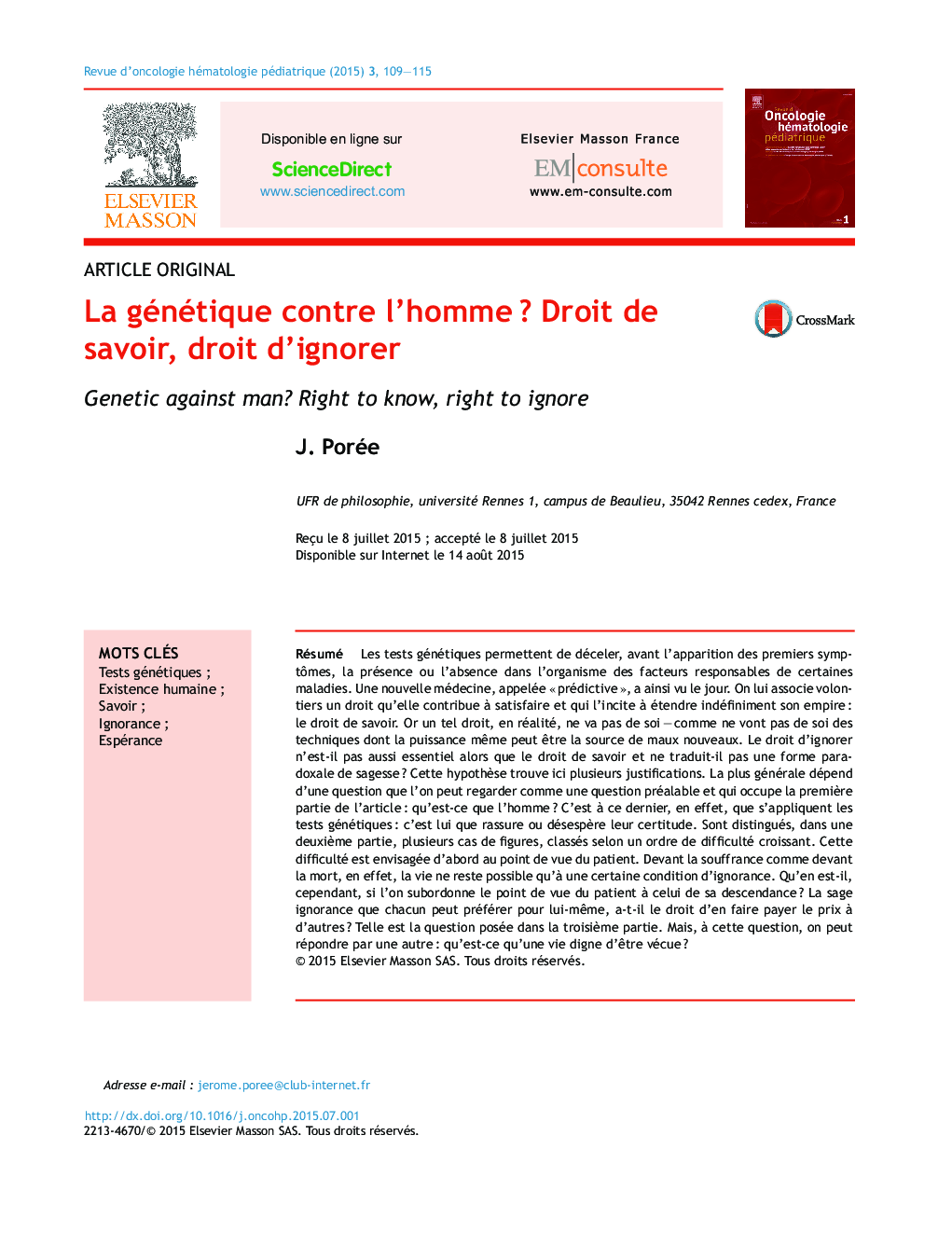| کد مقاله | کد نشریه | سال انتشار | مقاله انگلیسی | نسخه تمام متن |
|---|---|---|---|---|
| 3333247 | 1213301 | 2015 | 7 صفحه PDF | دانلود رایگان |
عنوان انگلیسی مقاله ISI
La génétique contre l'homme ? Droit de savoir, droit d'ignorer
دانلود مقاله + سفارش ترجمه
دانلود مقاله ISI انگلیسی
رایگان برای ایرانیان
کلمات کلیدی
موضوعات مرتبط
علوم زیستی و بیوفناوری
ایمنی شناسی و میکروب شناسی
ایمونولوژی
پیش نمایش صفحه اول مقاله

چکیده انگلیسی
Genetic tests allow one to detect, even before the first symptoms have appeared, the presence or absence in an organism of factors responsible for certain illnesses. A new type of medicine, called “predictive”, has thus appeared. One can freely associate to this a right, which it contributes to satisfying, and which it encourages to extend without limit: the right to know. However, such a right, in reality, does not just happen, in the same way as those techniques whose power is perhaps the source of new illnesses. Is not the right to ignore also as essential as the right to know, and does this not lead to a paradoxical form of wisdom? This hypothesis finds here several justifications. The most general depends on a question which one can think of as a prerequisite, and which occupies the first part of the article: what is a man? One applies the genetic tests on him: he is reassured or despairs the certainty of the result. However, its timeliness is doubtful, in the latter case. Dogmatic postures must nevertheless be avoided. With this aim, in the second part, several scenarios are identified, classed in order of increasing difficulty. Huntington's chorea, corresponding to the greatest difficulty, serves as a guide to our thinking, which is then extended to other pathologies. This difficulty is firstly examined from the patient's point of view. One can ask, in effect, if the apparent control that the prediction brings to him is not a real service, and if faced with suffering, in the same way as being faced by death, life only remains possible with a certain degree of ignorance. However, what happens if one subordinates the patients view point to that of his offspring. Does one have the right to impose wise ignorance, which each could prefer for oneself, on others? That is the question. That said, one can answer this question by asking another: what is a life worthy of being lived? This forms the discussion sketched in the third part of this article.
ناشر
Database: Elsevier - ScienceDirect (ساینس دایرکت)
Journal: Revue d'Oncologie Hématologie Pédiatrique - Volume 3, Issue 3, September 2015, Pages 109-115
Journal: Revue d'Oncologie Hématologie Pédiatrique - Volume 3, Issue 3, September 2015, Pages 109-115
نویسندگان
J. Porée,